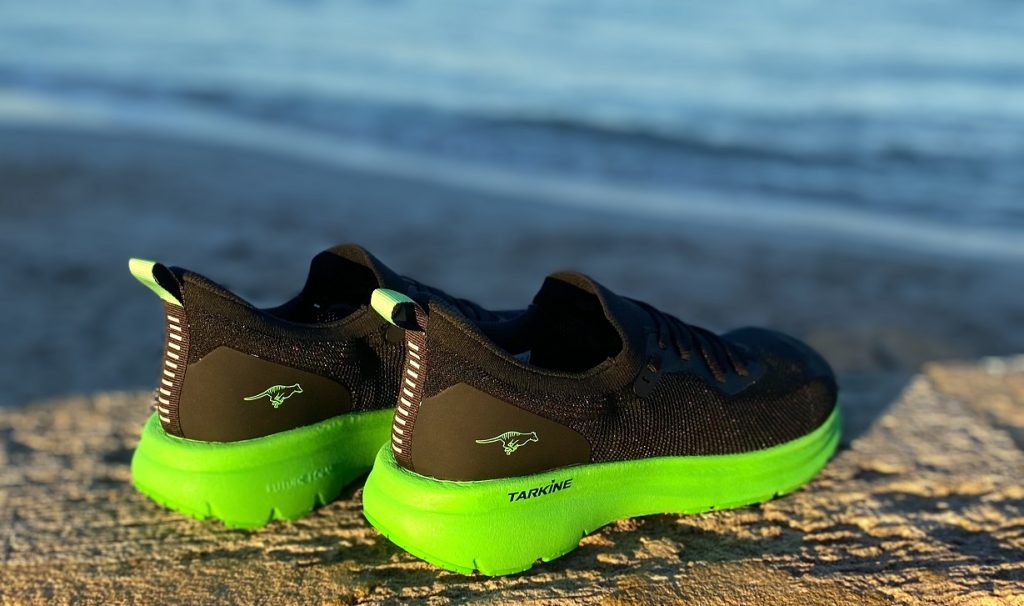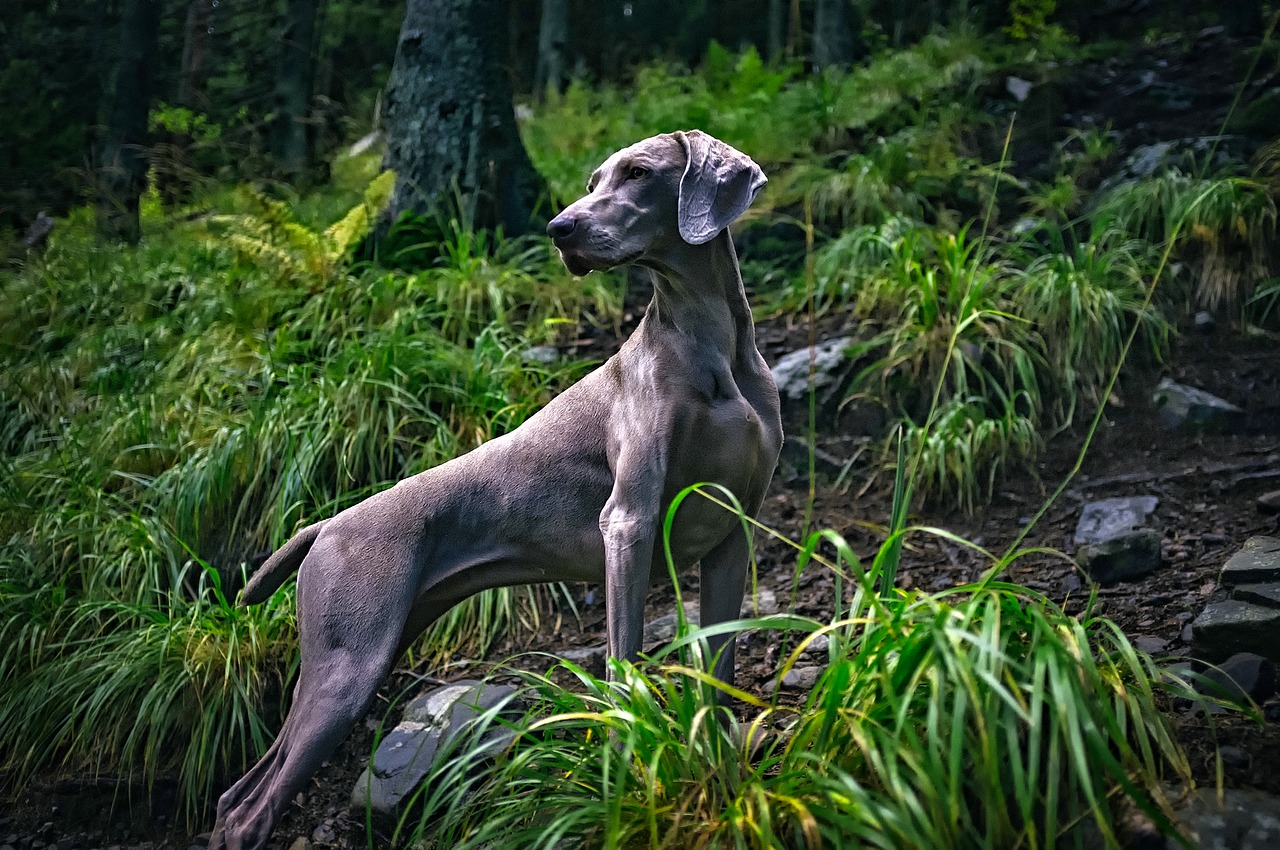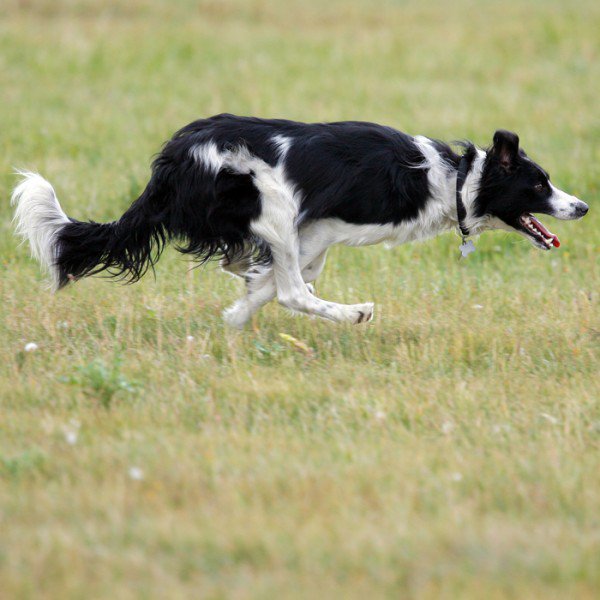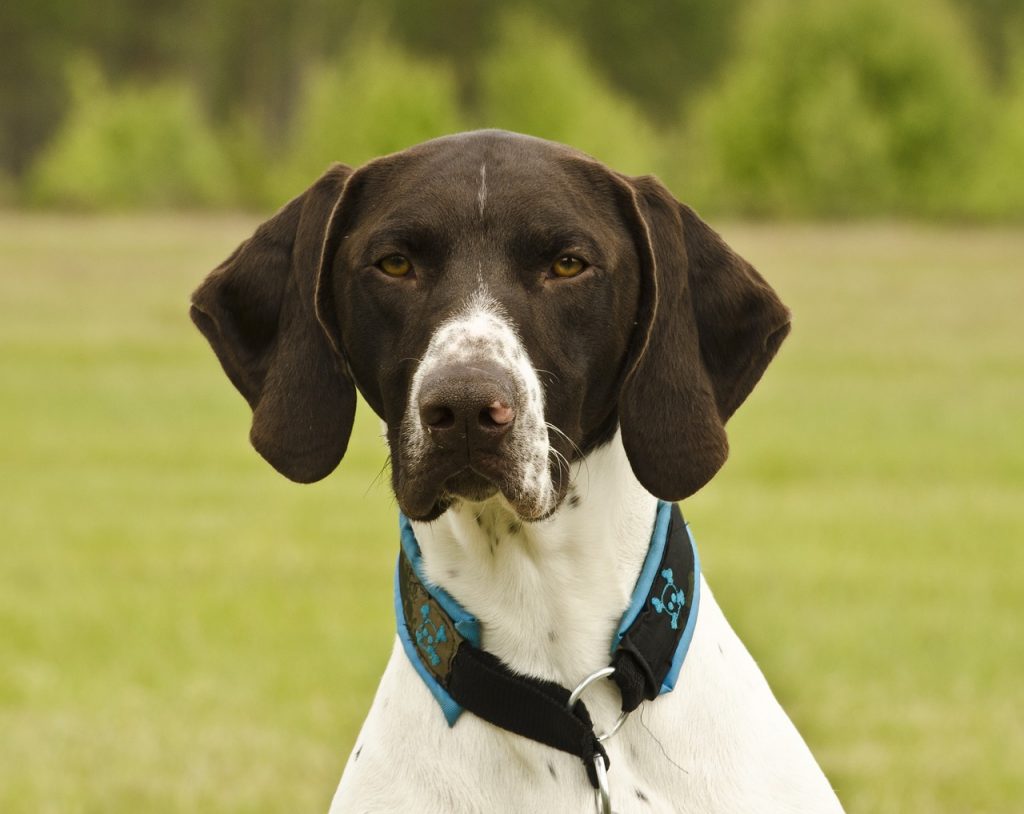© 2018 Runner’s Tribe, all rights reserved.
By Sam Burke, Veterinarian, BVMS.
Lonely on those long runs? Want a training partner who doesn’t speak? Sounds awesome right! A well-trained dog might be just what you are after. But buyers beware, not many dogs can handle long runs over hilly terrain, on a consistent basis.
I’ve read a lot of articles which list the best dogs for endurance running (not sprinting). As a veterinarian, I tend to disagree with many of the dogs listed in these articles. Vets are the ones who see the dogs when they pull up lame and require new hips or stifle (knee) surgery for cruciate ligament ruptures.
Labrador Retrievers, German Shepherds, Boxers, Beagles, and Golden Retrievers are commonly listed as ideal endurance running partners. I am sure there may be some exceptions here, but as a whole these breeds can’t handle 90-minute runs at a brisk pace over rough terrain. And if they can, their longevity will be limited. Their hips, stifles, or carpal (wrist) joints will soon give way.
Running tends to unravel our biomechanical weaknesses and amplify them; dogs are no different and when you take a dog with underlying hip dysplasia or stifle biomechanical abnormalities, you are asking for trouble. Orthopaedic surgery or long term use of anti-arthritis medications will more than likely be the result.
But there are many breeds that are incredibly hardy, that can handle 120km weeks or more, and rarely seem to break down with injury. Obviously there are, once again, exceptions. There are countless medical problems any breed can suffer from which will limit their running abilities. But as a general rule, the below breeds will serve you well during your tough, hilly, rocky, endurance runs.
Note: I have listed purebred dogs below for obvious reasons. Generally speaking, crosses of any of these breeds would also most likely result in awesome endurance running pooches. From a genetic perspective, 99.999% of veterinarians would advise a cross-bred dog over a purebred.

- Weimaraner
Weimaraner’s were made to run. Whether it’s short, quick bursts or long distances. With a short coat they are not as susceptible to overheating as many other breeds. They are tough on rough terrain and trails, and tend to be fearless. Their only weakness is that some can be a little anxious, but with proper training this shouldn’t be an issue.
- Border Collie
Border Collies belong on farms. But if you, like many, are determined to have a Border Collie, I sure as hell hope you are a good runner, as these guys will run many of our country’s best runners off their feet. Some Border Collies are born with genetic carpal (wrist) abnormalities which can predispose to arthritis, but if you can avoid that, then good luck trying to keep up.
- Hungarian Vizsla
Vizsla’s are amazing athletes. Probably my favourite running dog. They are amazing runners (speed and endurance), they can jump, navigate, and they are incredibly easy to train. Their short coat is ideal for temperature control and they are as loyal as can be. If there is a perfect breed, this is it.
- German Shorthaired Pointer
Bred for hunting, German shorthaired pointers (GSP’s) are true endurance athletes and require a lot of exercise. They are the sort of breed that seems to get stronger the longer the run goes. Some GSP’s can be a little anxious, but this tends to not be a problem when they are both well exercised and well trained. Their short coat is perfect for temperature control.
- Kelpie
I have a mate who ran 2:23 at the Boston marathon a few years back. For the 6 months leading into the race his trusty Australian Kelpie did every training run with him. Another farm dog, they are as tough as nails, easy to train and so loyal they make you feel guilty when you look at another dog.
- Rhodesian Ridgeback
Rhodesian Ridgebacks were bred many years ago to hunt lions in Africa, so naturally they are pretty decent runners. I’ve seen a lot of snappy, aggressive Ridgebacks, but this is more often than not the result of idiot owners, so let’s not hold that against them. When in a good home, these dogs are just beaut. You can read all about Rhodesian Ridgebacks in this breed guide.
- Australian Shepherd
Another dog that belongs on a farm. These dogs were actually bred in the United States, but hey, they obviously prefer to be called Aussies, damn smart dogs I say. These dogs can run all day. Their only downside is their longer coat can lead to overheating on those really hot days.
- Dalmatian
Dalmatians are awesome runners if well looked after. They tend to land heavier than many of the other dogs listed and are therefore more suited to trails than the road. Their short coat is ideal for temperature control.
- Siberian Husky
As a general rule having Siberian Huskies in hot climates is pretty stupid and at times cruel. As the name suggests, these dogs were bred in Siberia, yes, Siberia. Their thick coats were thus designed to keep them warm, in SIBERIA. But alas, these dogs are popular, and the fact that they can run all day is undisputable. I think a perfect solution is to keep their coat short by getting them groomed on a regular basis. Don’t believe anyone who tells you it’s cruel to groom them, I mean just think about it for a second, a groom is just a haircut, and I tend to think that dogs aren’t overly vain.
- Australian Cattle Dog
I’ve seen a lot of Australian Cattle dogs with hip and stifle problems, so a cross-bred Cattle dog is preferable. But if you are lucky enough to get one with fortunate genetics, then these dogs are awesome for long, steady runs. A little shorter and compact than many of the breeds listed above, but don’t let this fool you, they are machines.
Other Notable Breeds
There are many other breeds that can cover a marathon no problem. Some Belgian Shepherds and various other Shepherd breeds, English Setters, Staffordshire Terriers, some Whippets and Italian Greyhounds, some Malamutes, some Spaniels, some Jack Russell’s for example, and various other breeds. But the above list is a good place to start.





























Hi Sam
What about Irish Wolfhounds? Are they any good at long distance (24-34km) runs?
Hey Sefan sorry for slow reply. Yeah they are awesome runners endurance wise, they age fast, but when young, they are perfect. Cheers
I don’t think it’s cruel to groom huskies, but second coats can actually protect dogs from heat as well. Also, have the groomer cut a lot around his paws, as these are very well insulated, which makes the dog hotter. Don’t just shave a husky as the second coat is beneficial. With all dogs bring lots of water.
Thanks for your excellent article. I have a spunky, 8-year-old border terrier who loves to run, but she tops out at 3 miles on a leash, 5-6 miles in on off-leash trails. As we are looking to find her a “brother,” I am considering a dog that can run up to 10 miles, but is not too large — I am thinking of another terrier, like a Parson/Jack/Russel/mix. Are there any other small-to-medium sized terriers you might recommend (We might consider another a working breed/mix (like a border collie, or a medium-sized poodle?), but we just love the terrier personality!
I have a Labrador who easily runs 3-5 miles on hilly roads/ mountains.
Tx for good article. I have a 7yr old(black and tan) doberman as a trail running companion. (I am the one getting tired) They have lots of similarities to the Weimaraner. His black coat might be a problem in very hot conditions. May be brown and tan doberman will be better? Being a woman trail runner, his presence gives me the feeling of security. He is not aggressive and never had to act, but I know he would if needed.
Labradors go well when you shave them and take off the top coat so they don’t over heat. Im summer my lab always has short hair ….
Pretty accurate list, overall. A few concerns though:
The Rhodesian Ridgeback feels out of place on this list. They are a lot of dog. The temperament issues commonly seen in the breed, which can be a genuine danger to those around them, have a strong genetic basis. As in, a good owner can raise a poorly bred Rhodie from puppyhood and still end up with a dangerous animal due to no fault of their own. Aggression in such a large breed is not a joke, and I doubt the average I’m-getting-my-dog-primarily-as-a-running-partner pet owner should be encouraged to consider the breed, unless they are specifically drawn to their other characteristics and understand the vital importance of finding a breeder that prioritizes sound temperaments. I know of a vet behaviorist that had an aggressive Ridgeback and couldn’t have guests visit their home. If there was no genetic basis to these issues, surely a behaviorist of all people would be able to reduce their dog’s level of aggression and distrust.
Siberian Huskies’ coats should not be trimmed. What you want to do is remove their undercoat, so that only
their slick, flat, outer coat remains. This is achieved via slicker brush, zoom groom, shedding blades, high velocity dog dryers, and etc. The result is a dog that isn’t overly insulated with coat but is still protected from the sun. Also, the image shown for the Husky in this article is a straight up Wolf. Kind of a concerning oversight that undermines the sense of credibility here.
I love that you prioritized proneness to injury when constructing this list. Most of the dogs here are definitely known for their ability to hold up over long distances on a regular basis. Of course, proper conditioning can make a difference too. A lot of ACDs I’ve known that have joint issues are fat, on top of having poor angulation. Terrible for joints. The pointing breeds you mentioned are probably some of the best breeds for distance running. There’s a reason that many short-distance (e.g. distances that don’t involve camping along the trail) sleddog racers use GSPs that have a sprinkle (25% or less, generally) of greyhound in them.
I had a Springer Spaniel who did 18 miles a week with me for years (3×6 mile runs) on trails over the mountain next to my house. We’d get home and then he’d want to chase a ball for 2 hours. Then a swim in the afternoon. He started to slow down at 11 and was fairly debilitated the last 6 months dying at 13. But, my god that dog loved every second of every run. I’ve never met any being so enthusiastic.